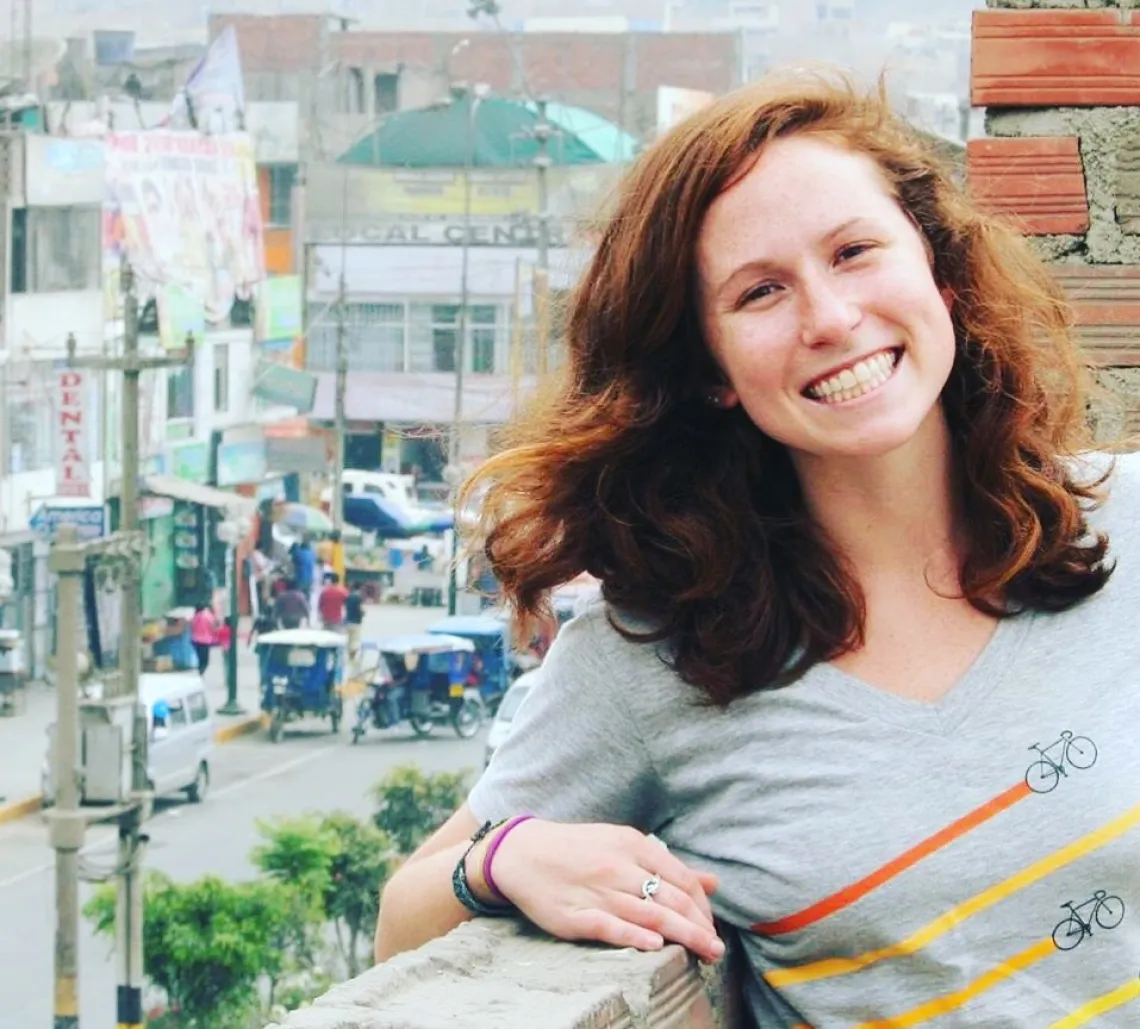Spotlight on Sarah Renkert - Fulbright-Hays Doctoral Dissertation Research Abroad

My name is Sarah Renkert and I am a Ph.D. student in Applied Sociocultural Anthropology. I have applied to multiple fellowships and I would like to share five key takeaways to success.
My research considers how a shift from community-level food aid programs to individual households impacts the ability of Peruvian neighborhoods to collectively support local wellbeing. One methodological aspect I most appreciate about sociocultural anthropology is the value it places on long-term fieldwork. Geertz’s notion of “deep hanging out” is a good way to describe the year and a half I plan to spend in communal and household kitchens chopping vegetables and chatting with women. However, as one might imagine, spending so much time in the field requires funding.
Aware of my upcoming financial needs, I began my funding search about two-years before I planned to leave for fieldwork. I started by attending a Social and Behavioral Sciences Research Institute Pivot workshop and any relevant workshop hosted by the always helpful Office of Fellowships and Community Engagement. I also asked fellow graduate students in the School of Anthropology which grants they had applied for, just to get an idea of what types of grants were out there. As I was moving through this search process, I kept an excel file with the name of each grant and their deadlines.
Ultimately, I made the choice to begin with an application for the Fulbright-Hays Doctoral Dissertation Research Abroad Grant. When I began the application process in January 2018, I assumed the yet unannounced deadline would be sometime in March. I knew that this was a short turnaround to write a solid grant. Nonetheless, I wanted to get something submitted with the hope that I would receive helpful feedback for writing future grants. I had the first draft written within a month and started the process of editing and receiving feedback from colleagues within the University of Arizona. March rolled around and the deadline for Fulbright-Hays had still not been announced. So, I kept working on my writing. By the time the deadline was announced for June 2018, I had been working on this grant for about five months and had received feedback from multiple reviewers both in and outside of academia. After so much hard work, I was grateful to learn last fall that I had been awarded the grant.
After surviving the application process, here are some of my key takeaways:
- Pre-dissertation research is key. I completed about three months of pre-dissertation research in Lima over two summers, which I believe contributed to the strength of my grant. Engaging in ethnographic research and building connections at a local university were key to the success of my application because I was able to demonstrate the feasibility of my research proposal.
- Find collaborators early. If you are applying for any grant which requires an institutional partner, such as a university, start building those connections as early as possible. I was really nervous as I sent an email to a seemingly random professor in Perú, but she absolutely loved my project and I have since built important connections at the university.
- Participate in the Graduate College’s Summer Support Fellowship Program. Having additional deadlines really helped me get drafts out the door and the feedback provided by my reviewer, Cari Tusing, was invaluable. In general, get as much feedback as you can.
- Get one grant out the door. Once I spent so much time on Fulbright-Hays, it was a lot easier to write the other grants such as the NSF-DDRIG, Wenner-Gren, Lewis and Clark Fund, and Mellon IDRF.
- If your research requires an IRB, start this process as soon as possible. I am not leaving for fieldwork until June 2019, so I figured I could wait until winter to write my IRB. Wrong. I ended up receiving the Fulbright-Hays and another grant, the latter requiring that I have my IRB approved by mid-December. I ultimately got it through, but it was a stressful process.
In sum, the key takeaway is to plan ahead. I feel lucky to have gotten the funding I need to do the work I want to do. But I also set myself up for good luck by starting the search process really early and beginning the application far ahead of the deadline. Despite the fact that I have over a year before I will need them, I already have feelers out for dissertation write-up awards.

